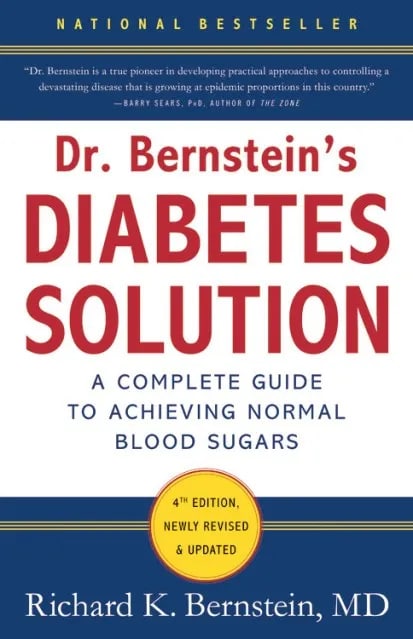We interviewed Shelese Pratt ND, an instructor at the Metabolic Terrain Institute of Health, about the metabolic approach to autism. You can watch the replay below. Please note that you will be asked to provide your email address at the 30-minute mark to continue viewing the video.
What Is a Metabolic Approach?
Although one would assume that a metabolic approach is mostly based on metabolism and blood-sugar control, it is actually much more. The Terrain Ten that comprise the metabolic approach to autism are the same as those laid out in The Metabolic Approach to Cancer: Integrating Deep Nutrition, the Ketogenic Diet, and Nontoxic Bio-Individualized Therapies by Nasha Winters ND FABNO L.Ac Dipl.OM. These are:
- Genetic, epigenetic, and nutrigenomic modifications
- Blood sugar balance
- Toxic burden management
- Repopulating and balancing the microbiome
- Immune system maximization
- Modulating inflammation and oxidative stress
- Enhancing blood circulation
- Establishing hormone balance
- Recalibrating stress levels and biorhythms
- Enhancing mental and emotional well-being
In This Webinar
Dr. Pratt helped us to answer the following questions in this webinar:
- What is a metabolic approach?
- Why does this approach help children with autism?
- What kinds of symptom improvement are common with this approach?
- What are some examples of improvements in children with autism who have used this approach?
- Why don’t pediatricians and neurologists know about or use this approach?
Key Discussions
Dietary Interventions for Autism and Behavioral Issues
Dietary modifications, such as a gluten-free, casein-free diet and an elimination diet, can potentially reduce inflammation and improve behaviors and other symptoms in children with autism.
The Role of Metabolic and Hormonal Factors in Child Development
Dysregulated insulin and blood sugar balance can have profound effects on the health of children with autism.
Importance of Individualized Gut Health and Microbiome Management
The health of the gut microbiome is intricately connected to overall wellness, immune function, and behavior in children with autism. Bioindividual approaches to gut health, including the use of specific probiotics and management of fungal infections, are critical to improving health and reducing symptoms.
Influence of Environment and Lifestyle on Genetic Expression
While genetics play a role in health, environmental factors and lifestyle choices significantly influence gene expression.
The Necessity of a Calm and Structured Environment for Children with Autism
Children with autism and other behavioral issues are hyper-responsive to their surroundings, making a calm, structured environment essential for their well-being. Parental self-care, stress management, and reduced exposure to overstimulating technology before bedtime are some of the important strategies to create stability and support for these children.
Timestamped Overview
00:00 Expanding expertise in treating ADHD and autism.
08:05 Functional medicine relearned, naturopathic doctors taught well.
13:48 Blogger’s lecture inspires mother to remove dyes.
20:20 Early management of blood sugar crucial for improving symptoms.
24:57 A gluten- and casein-free diet benefits children with autism.
29:47 Improved health after reducing inflammation and microbiome shift.
32:26 Low-carb diets such as the ketogenic diet aid in reducing inflammation and seizures.
41:29 Inflammation in the gut affects brain behavior.
45:35 Folic acid’s impact on spina bifida prevention.
49:34 Understanding biochemistry, heavy metals, and reducing toxins.
55:37 Doritos and hot dogs affect brain balance.
01:09:11 High cortisol impacts sleep and the immune system negatively.
01:14:27 Non-invasive therapies can help autoimmune issues.
01:15:32 Pay attention to symptoms.
01:22:48 Blood work to assess iron, homocysteine, thyroid, and the immune system.
01:27:51 High levels of lead from airports impact health.
01:33:02 Manage hydration and support organs.
01:36:59 Biofilm is like a cloak for hiding.
01:44:09 Adenosylcobalamin benefits mitochondria, calms hyperactive kids.
01:47:26 Genes influence, not determine, your life outlook.
Resources Mentioned in This Webinar
Dr. Pratt mentioned many resources in this webinar, and we provide the links below for further education.
Dietary Resources
- Gluten-free/casein-free diet
- Elimination diet
- Feingold diet
- The Gut And Psychology (GAPS) Diet
- The Specific Carbohydrate Diet (SCD)
- Ketogenic diet
- Eat a clean diet
- Low-histamine diet
- Low-glutamate diet
Symptoms and Diagnoses
Informational Pages
- Organic Acid Test
- Total Load Theory
- Mitochondrial Dysfunction
- Folate Deficiency Connection
- The Methylation Cycle
- Homeopathy for Autism, ADHD and Other Developmental Delays
Webinar Replays
- Supporting the Health of Kids with Cancer with Dr. Nasha Winters
- Glutamates and Autism with Katie Reid PhD
- Mold and Mycotoxin Illness with Jodie Dashore
- GABA and Glutamate: What Works for Anxiety? with Trudy Scott
- How the Oral Microbiome Affects Whole-Body Health
Success Stories
Suggested Books
- Dirty Genes: A Breakthrough Program to Treat the Root Cause of Illness and Optimize Your Health
- Healing the New Childhood Epidemics: Autism, ADHD, Asthma and Allergies
Other Sources
About Shelese Pratt ND
Shelese Pratt is a naturopathic doctor who graduated from the National University of Naturopathic Medicine in 2004. She is a licensed naturopathic physician in the states of Oregon and Connecticut and a registered naturopathic doctor in Colorado.
In 2019, she joined the faculty at the Intergrative Psychiatry Institute. Dr. Pratt received her mold-literate certification from Dr. Jill Crista in 2019 and graduated from the Metabolic Approach to Cancer Master Course in 2023.
She is now an instructor for the Metabolic Approach to Cancer Master Course and Terrain Advocate Program, which are run by the Metabolic Terrain Institute for Health.

She believes in individualized integrative medicine, and her practice is focused on complex medical conditions relating to metabolic disease. She uses functional medicine and her expertise in methylation and physiology to help her patients get to the root cause of their symptoms through a strategic approach. She uses traditional and specialty testing, nutrition (diet and nutritional supplements), botanicals, environmental medicine, classical homeopathy, and hydrotherapy modalities in her practice.
She has treated Lyme disease, Epstein-Barr Virus (EBV), mold illness/ mycotoxin exposure/CIRS, Mast Cell Activation Syndrome (MCAS), Traumatic Brain Injury (TBI), learning difficulties (ADD, ADHD, and dyslexia), sensory processing disorders, autistic spectrum disorders, digestive system disorders/disease, endocrine disorders, autoimmune disease, and mood disorders.
To learn more about her and her work, please visit her website at ThePrattClinics.com
Disclaimer
This webinar is not a substitute for medical advice, treatment, diagnosis, or consultation with a medical professional. It is intended for general informational purposes only and should not be relied on to make determinations related to treatment of a medical condition. Epidemic Answers has not verified and does not guaranty the accuracy of the information provided in this webinar.
Still Looking for Answers?
Visit the Epidemic Answers Practitioner Directory to find a practitioner near you.
Join us inside our online membership community for parents, Healing Together, where you’ll find even more healing resources, expert guidance, and a community to support you every step of your child’s healing journey.
Sources & References
Accurso, A., et al. Dietary carbohydrate restriction in type 2 diabetes mellitus and metabolic syndrome: time for a critical appraisal. Nutr Metab (Lond). 2008 Apr 8:5:9.
Boison, D. New insights into the mechanisms of the ketogenic diet. Curr Opin Neurol. 2017 Apr;30(2):187-192.
Bostock, E.C.S., et al. The Current Status of the Ketogenic Diet in Psychiatry. Front Psychiatry. 2017 Mar 20:8:43.
Brenton, J.N., et al. Phase II study of ketogenic diets in relapsing multiple sclerosis: safety, tolerability and potential clinical benefits. J Neurol Neurosurg Psychiatry. 2022 Jun;93(6):637-644.
Cheng, N., et al. Metabolic Dysfunction Underlying Autism Spectrum Disorder and Potential Treatment Approaches. Front Mol Neurosci. 2017 Feb 21:10:34.
deCampo, D.M., et al. Ketogenic dietary therapies for epilepsy and beyond. Curr Opin Clin Nutr Metab Care. 2019 Jul;22(4):264-268.
de la Rubia Orti, J.E., et al. Can Ketogenic Diet Improve Alzheimer’s Disease? Association With Anxiety, Depression, and Glutamate System. Front Nutr. 2021 Oct 27:8:744398.
de la Rubia Orti, J.E., et al. Exploring the impact of ketogenic diet on multiple sclerosis: obesity, anxiety, depression, and the glutamate system. Front Nutr. 2023 Aug 25:10:1227431.
Dietch, D.M., et al. Efficacy of low carbohydrate and ketogenic diets in treating mood and anxiety disorders: systematic review and implications for clinical practice. BJPsych Open. 2023 Apr 17;9(3):e70.
Dyńka, D., et al. The Role of Ketogenic Diet in the Treatment of Neurological Diseases. Nutrients. 2022 Nov 24;14(23):5003.
Feinman, R.K., et al. Dietary carbohydrate restriction as the first approach in diabetes management: critical review and evidence base. Nutrition. 2015 Jan;31(1):1-13.
Gough, S., et al. Neuroprotection by the Ketogenic Diet: Evidence and Controversies. Front Nutr. 2021 Nov 23:8:782657.
Grochowska, K., et al. The Effect of the Ketogenic Diet on the Therapy of Neurodegenerative Diseases and Its Impact on Improving Cognitive Functions. Dement Geriatr Cogn Dis Extra. 2022 May 30;12(2):100-106.
Jiang, Z., et al. Effects of Ketogenic Diet on Neuroinflammation in Neurodegenerative Diseases. Aging Dis. 2022 Jul 11;13(4):1146-1165.
Kapoor, D., et al. Emerging Role of the Ketogenic Dietary Therapies beyond Epilepsy in Child Neurology. Ann Indian Acad Neurol. 2021 Jul-Aug;24(4):470-480.
Karkafi, R.E., et al. Ketogenic Diet and Inflammation: Implications for Mood and Anxiety Disorders. Adv Exp Med Biol. 2023:1411:537-554.
Lee, R.W.Y., et al. A modified ketogenic gluten-free diet with MCT improves behavior in children with autism spectrum disorder. Physiol Behav. 2018 May 1:188:205-211.
Lefevre, F., et al. Ketogenic diet for the treatment of refractory epilepsy in children: A systematic review of efficacy. Pediatrics. 2000 Apr;105(4):E46.
Li, Q., et al. A Ketogenic Diet and the Treatment of Autism Spectrum Disorder. Front Pediatr. 2021 May 11:9:650624.
Mentzelou, M., et al. The Relationship of Ketogenic Diet with Neurodegenerative and Psychiatric Diseases: A Scoping Review from Basic Research to Clinical Practice. Nutrients. 2023 May 11;15(10):2270.
Mierau, S.B., et al. Metabolic interventions in Autism Spectrum Disorder. Neurobiol Dis. 2019 Dec:132:104544.
Mu, C., et al. Metabolic Framework for the Improvement of Autism Spectrum Disorders by a Modified Ketogenic Diet: A Pilot Study. J Proteome Res. 2020 Jan 3;19(1):382-390.
Olivito, I., et al. Ketogenic diet ameliorates autism spectrum disorders-like behaviors via reduced inflammatory factors and microbiota remodeling in BTBR T+ Itpr3tf/J mice. Exp Neurol. 2023 Aug:366:114432.
Operta, F.F., et al. The Ketogenic Diet for the Treatment of Mood Disorders in Comorbidity With Epilepsy in Children and Adolescents. Front Pharmacol. 2020 Nov 24:11:578396.
Pietrzak, D., et al. The Therapeutic Role of Ketogenic Diet in Neurological Disorders. Nutrients. 2022 May 6;14(9):1952.
Pulsifer, M.B., et al. Effects of ketogenic diet on development and behavior: preliminary report of a prospective study. Dev Med Child Neurol. 2001 May;43(5):301-6.
Smith, J., et al. Ketogenic diet restores aberrant cortical motor maps and excitation-to-inhibition imbalance in the BTBR mouse model of autism spectrum disorder. Behav Brain Res. 2016 May 1:304:67-70.
Stafstrom, C.E., et al. The ketogenic diet as a treatment paradigm for diverse neurological disorders. Front Pharmacol. 2012 Apr 9:3:59.
Tao, Y., et al. Ketogenic Diet: An Effective Treatment Approach for Neurodegenerative Diseases. Curr Neuropharmacol. 2022 Nov 15;20(12):2303-2319.
Tidman, M.M., et al. Effects of an low carbohydrate/healthy fat/ketogenic diet on biomarkers of health and symptoms, anxiety and depression in Parkinson’s disease: a pilot study. Neurodegener Dis Manag. 2022 Apr;12(2):57-66.
Vargas, D.D., et al. Effectiveness of nutritional interventions on behavioral symptomatology of autism spectrum disorder: a systematic review. Nutr Hosp. 2022 Dec 20;39(6):1378-1388.
Resources
Articles
Mayers, Dara. The nutrition advice given to most diabetics might be killing them. U.S. News Health & Medicine, July 2003.
Totty, Patrick. ADA’s Latest Low-Carb Stance Is Severely Flawed, Says Longtime Low-Carb Advocate Dr. Bernstein. Diabetes Health, 8 February 2008.
Books
Bernstein, Richard K. Dr. Bernstein’s Diabetes Solution: The Complete Guide to Achieving Normal Blood Sugars. Little, Brown Spark, 2011.
Jockers, David. Keto Metabolic Breakthrough: A Radical Approach to Reversing Metabolic Dysfunction, Optimizing Nutrient Timin g, and Balancing Hormones for Success on a Low-Carb Diet. Victory Belt Publishing, 2020.
Wahls, Terry. The Wahls Protocol: A Radical New Way to Treat All Chronic Autoimmune Conditions Using Paleo Principles. Avery, 2020.
Winters, Nasha. The Metabolic Approach to Cancer: Integrating Deep Nutrition, the Ketogenic Diet, and Nontoxic Bio-Individualized Therapies. Chelsea Green Publishing, 2017.
Websites
Dr. Bernstein’s Diabetes Solution



